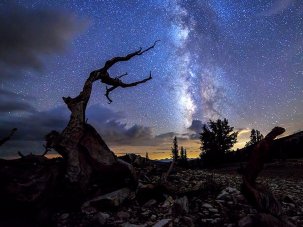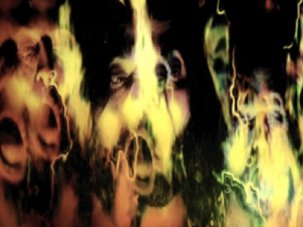Named after the second track on Sigur Rós’s Valtari album, Nick Abrahams’ award-winning short film Ekki Múkk, as eerie as the music and lyrics that inspired it, was made for the valtari mystery film experiment. To promote their sixth studio album, the Icelandic band Sigur Rós gave a dozen filmmakers and directors a small budget and free reign to make whatever they pleased by way of visual accompaniment to any song off the album. The resulting videos, made by directors who are artists in their own right or have collaborated with artists – Ryan McGinley, Ragnar Kjartansson, Clare Langan and Ramin Bahrani, among them – have the feel of artist-made films rather than pop videos.
For Ekki Múkk, Abrahams, who made his name by directing music videos for various bands, including Sigur Rós, has tried his hand at doing something new. The gambit evidently paid off, since the ten-minute-long film just won the main prize at this month’s London Short Film Festival. In contrast to his old punk-rock movies shot on handheld Super 8 (recently shown alongside his more recent output in ‘A Night of Nick Abrahams Films’ at the ICA), Ekki Múkk, filmed in large part with a RED digital camera, feels slick and measured. By Abrahams’ own admission, its radically different aesthetic owes something to the influence of artist Jeremy Deller, with whom Abrahams has co-directed two feature-length films, a documentary about Depeche Mode fans around the world and one about the British visionary artist Bruce Lacey.
A taster for his own first feature film, Ekki Múkk is based on a true story of a man with learning difficulties who gets lost on his way home and ends up walking for four days. Featuring Aidan Gillen as the man and folk singer Shirley Collins as the talking snail that guides him on his journey through field and forest, it’s a paean to the British countryside.
Beautifully shot by Ole Birkeland [homepage], with additional photography by Martin Dohrn (who has filmed nature programmes for David Attenborough), Ekki Múkk mixes drama, natural history and magical elements to beguiling effect. Sigur Rós’s music dictates the film’s languid pace but the director takes liberties with the soundtrack, which has been altered at times, paused for dramatic effect and overlaid with dialogue extraneous to the original lyrics. Far from merely illustrating the song, the short created in response to it has a will of its own.







